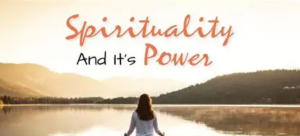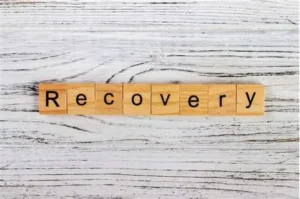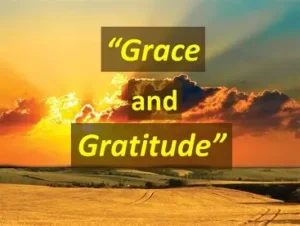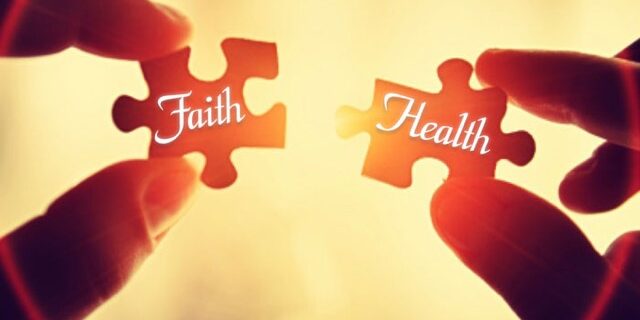Read time 7 minutes
There are moments in life when the world feels like it stops; not because something extraordinary has happened, but because something inside us breaks.

For me, that moment arrived when I was suddenly overwhelmed by an illness I never expected. What came next was a series of medical issues, emotional challenges, and a relentless search for meaning amid the chaos. Yet, throughout it all, what kept me grounded was something very personal: spirituality.
This is my story of healing, faith, and how grace held me together when everything else was falling apart.
I dedicate this blog post to HIS Glory.

This blog post explores my relationship between spirituality and healing. This post can be helpful if you want to know how grace can nurture to achieve milestones in any healing process.
HIS GLORY says I’ll be fine.
At times, life bends us way too much between two breaths,
Health is an honor, and not everyone is respected.
I wonder why my romance with it turned so sour.
I started feeling the reflections of some foreign wounds as my shadows went darker,
The scars flaunted shamelessly and were not apologetic for my plight,
It tricked me with symptoms, diluted my confidence, and roared with a flux,
Beneath each ripple, my body burned with pain, and I could feel the gravity,
But my determination to get back from this fever was and is fearless.
It’s HIS GLORY that says I’ll be fine.

Waiting for the day when the dancing rhythm of bells will flow in my veins too,
And the mindful self-care techniques will heal my broken pieces.
The Known suggest me to surrender to karmic connections,
On the contrary, The Unknown aren’t liberated,
Nevertheless, I pray to The Supreme not to take away the bitter parts of my voyage,
As this desolate nourishes my horizon toward HIM.
It’s HIS GLORY that says I’ll be fine.
I must retain and sense his presence amidst the despair,
Never did HE argue that it would be a smooth walk, even if HE walks along,
I have to keep up with faith and optimism, which constantly flickers with doubts.
He has assured me that the shackles of pain will split asunder,
And that day I shall flee,
Until then, I must take my chances to keep tranquil and feel HIS glory.
It’s only time that will tell what’s been lost vs gained,
As of now, I have been asked to celebrate,
As HIS GLORY says, I’ll be fine.

The Call to Surrender
When illness shows up at your door, it rarely knocks politely. For me, it barged in uninvited and stayed longer than I ever imagined. It started in 2016 with a diagnosis of Isaacs’ Syndrome. It is a rare neuromuscular condition that causes painful muscle hyperactivity. That revelation alone would have shaken anyone, but fate had more in store. I soon discovered I also had Lyme disease, a tick-borne illness, and Glaucoma, which threatened my vision. Not long after came Membranous Glomerulonephritis. It is a progressive kidney disorder and a set of other conditions: Irritable Bowel Syndrome (IBS), Diabetes, Frozen Shoulder, Eczema and Blood Pressure issues.
It was overwhelming. My body, once strong and reliable, felt like a stranger. Every ache, every new symptom was a cruel reminder of how far from “normal” I had drifted. I felt broken, betrayed by the very vessel that housed me. And in my darkest hours, one question echoed: Why me?
But amid the turbulence, a quiet whisper grew louder each day—a whisper of something greater, something beyond flesh and bone.
The Quiet Power of Spirituality

There’s no manual for coping with a rare disease, especially when it’s accompanied by so many others.
My healing journey began not in a hospital room, but in my heart. In despair, I turned toward something ancient and comforting, spirituality.
Spirituality isn’t just rituals or prayer. It’s the feeling that you’re held, even when you’re falling. It’s finding meaning where pain lives and seeing beauty in broken places.
For some, it looks like religion; for others, it’s time in silence, mindful self-care, or the soothing rhythm of breath.
I was fortunate to be born in one of the oldest civilizations, India. it is a land where spirituality runs deep in the soil. Its presence in traditional medicine and everyday life. It gave me a framework to explore healing beyond science. Spiritual care retreats, and some personalized practices became my companions on the road to recovery.
My Turn Toward the Divine

One particularly transformative experience was a spiritual retreat in Rishikesh. The moment I stepped into that serene haven, something shifted. The scent of incense, the sacred sounds vibrating in the air, the quiet presence of others seeking the same peace—it was a space built for healing. Not just physical healing, but emotional and spiritual integration.
Here, I learned that spirituality doesn’t ask us to believe in a doctrine. It asks us to listen to ourselves, to the Universe, and to whatever name we give the Divine. Collective prayers and simple acts of awareness began to soothe the turbulence inside me.
The retreat helped me move past the question of “Why me?” and into “What now?” It encouraged me to embrace my brokenness.
Small Practices, Big Shifts

My spiritual practices evolved with time, tailored to my emotional and physical state. Some days, it was as simple as lighting a candle and breathing deeply. Other days involved prayer circles that left me feeling light and alive. Gradually, I noticed shifts—not just in my mental state, but in my physical body. My blood pressure stabilized. I began sleeping soundly. And most importantly, hope returned.
These practices didn’t rely on any single religion. They were inclusive, deeply personal, and focused on inner transformation. Spiritual care gave me tools to unblock emotional patterns, recalibrate my mindset, and restore balance between mind and body.
Words That Stayed With Me

My father often recited verses from the Bhagavad Gita, teaching me that being close to the Divine creates space for courage and clarity.
“No walk with God is guaranteed to be easy,” he’d say, “but it will always be meaningful.” These words, once just poetic phrases, became mantras I clung to during long nights and longer hospital visits.
Books like Resilience:
The Science of Mastering Life’s Greatest Challenges also guided me. They introduced stories of people who turned to spirituality in times of deep suffering. They emerged stronger, not despite their pain, but because of it.
Reframing Recovery

Recovery, I’ve learned, isn’t linear. It isn’t just about eliminating symptoms or ticking off doctor appointments. True healing is layered—it involves body, mind, and soul.
In my case, spirituality didn’t cure me. But it carried me. It became my compass through uncertainty. It turned fear into faith and despair into quiet determination. Through personalized practices and mindful awareness, I slowly started to redefine what it meant to be ‘well‘.
I began focusing less on fixing what was wrong and more on honoring what was right.
Lessons I Hold Onto

Here are a few reflections I gathered along the way:
- Spirituality is deeply personal
We don’t need ceremonies or scriptures unless they resonate with us. Even silence can be sacred
- It supports emotional resilience
Especially when illness knocks us flat, spiritual care helps us rise with grace
- It nurtures gratitude and optimism
Not just as a word, but as a daily practice
- It shifts focus from ‘Why me?’ to ‘What now?’
This reframing helped me reclaim my power
- Healing doesn’t mean curing
It can mean coming to peace with our story, even if it’s difficult.
Grace and Gratitude

Today, I walk slower. I pause often. But I walk with strength—an inner strength born from surrender. My journey has taught me not to rush healing or look for shortcuts. Instead, I celebrate the moments of grace, even amid struggle.
I bow my head for those still walking their paths of pain. I send love, light, and silent prayers for courage. May we all hold fast to hope and remember that we are not defined by what we lack but empowered by what we endure.
And above all, I trust in a quiet promise—the one that carried me through all this:
His Glory says I’ll be fine.
DISCLAIMER
The views expressed above in this article are the author’s own and do not represent any kind of medical advice.


